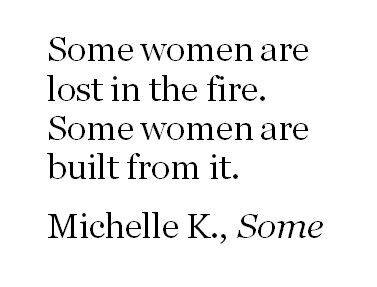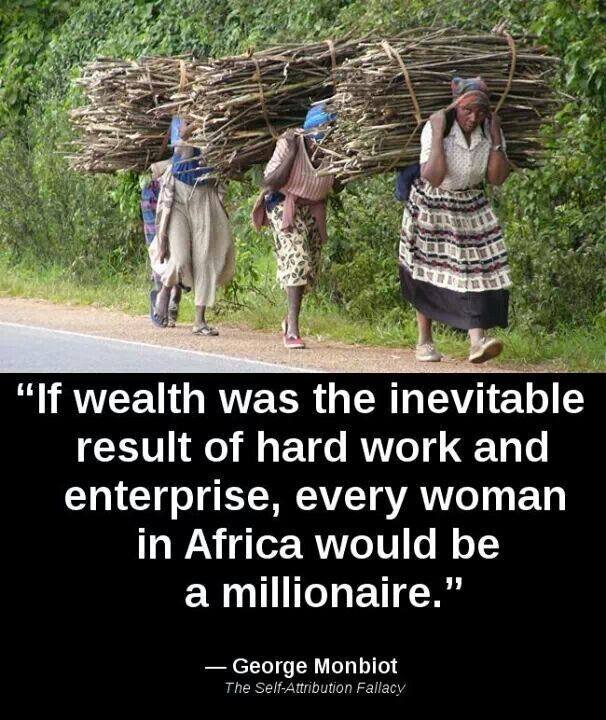Favorites from this week
I have to say, the first piece below from Cosmo really blew me away. Definitely an incredible step in the right direction regarding choice-related content. Beautiful stories from both partners who went through abortion experiences. Check out the entire piece at the link included.Tonight will be a big discussion in our house, mostly over whether the Grammy's or the next episode of Sherlock will be streaming through our cable box. Regardless, I'm bound to have a box of chocolate and a glass of wine nearby, after an incredibly long week. How are you resting up for the week to come? Hoping you and yours are staying warm if you, like us, are about to have polar vortex round 2 freeze our Monday away!Also, for those who don't follow on Facebook, here's an advertisement for a great course that just started on Friday:A free course on International Women's Health and Human Rights launches online on January 24. Anne Firth Murray, a New Zealander, who teaches at Stanford University and is the founding president of the Global Fund for Women, leads the course.You are invited to join an international community of learners, practitioners and activists! Depending on your level of interest, watch interviews with noted scholars and NGO leaders and engage in discussions with participants from around the world. You can receive a statement of accomplishment from Stanford University for completing the course.Learn more at www.internationalwomenshealth.

...
Ready or Not - Robin Gray-Reed at Mindful Midwife
"...I thought–naively, I now realize–that this part would be easier. I was peeking through my fingers at all the good “hiding places” where I thought I would be able to jump right in and start working. I was sure I would have something settled by now. Too sure. Instead, I have watched as one by one, my classmates have accepted midwifery positions. I tell myself I’m waiting for the right position to come along, and most of the time I believe it. But this part is harder than I thought it would be.
It is a lot like labor. You wait and wait and wait, and things move very slowly sometimes (other times not!) until, suddenly, there is a baby landing into your hands and the whole world is different.This birth I was at a few days ago was like that for me. I had been waiting for this kiddo for AGES. His mother is a close friend of mine. I looked at her fertility charting last spring and gave my opinions on it. I remember the text message she sent me when her pregnancy test came back positive (I was just pulling up to the hospital for a call shift in which I delivered a baby, and I was thrilled). I was there (by phone, email, online chatting) through all the pregnancy symptoms and complications. I planned to be there from week 39 of her pregnancy until the baby came (I was able to stay until week 42, but had to go back at that point to go to work), and towards the end, I wasn’t sure I would make it in time. But the baby waited for me, and then the tables turned and I waited for it…and waited, and waited. The baby’s mom and I walked to the beach almost every day, a good 3-4 mile trek. We saw dolphins and hawks and other endangered wildlife. We spent more time together in those three weeks than in the five years I have known her. She helped me think about my priorities for my first job and figure out what I am looking for. And I got to catch her baby in the morning of the day I had to fly home. Talk about timing!I remember a single moment where I was standing there in her labor room, my gown and gloves on. It was a pause in between pushing contractions, and I was working at reminding myself to breathe. I felt the space between worlds expand ever so slightly as I prayed for a safe journey for this baby. I planted my feet on the ground, focusing on my “aqui” and “ahora” tattoos, choosing to be present, here and now. I savored the agony and the ecstasy of that moment, knowing it was not one I would ever get back.And then, before I knew it, there was a baby’s head in my hands. This was the first baby I ever caught as a full-fledged midwife, and I ended up needing more assistance than I anticipated due to some clinical details I won’t get into. This baby’s birth story is not mine to tell. But my own birth story is. And as much as I have been a midwife since I first felt called to this work, and since I started catching babies, and since I finished school and passed my boards, I was born as a midwife in that room. The last time I was with this friend in labor, I was her doula. That was four-and-a-half years ago. Much has happened since then. She made another baby, and I got certified to catch it..."...A Naked Notion with Laci Green - YouTube channel, brought to you by Planned Parenthood of Northern New EnglandA cool series on many topics, lately birth control methods! ...How the Media Failed Women in 2013 - The Representation Project...Sarah's Uncertain Path - Tracy Droz Tragos and Andrew Droz Palermo at The New York Times"...Sarah, the subject of this Op-Doc video, lives in a rural town in western Missouri. She is in 10th grade. For generations almost no one in Sarah’s family has finished high school. Sarah vows that she does not want to follow in those footsteps. But how will her life be different? She became pregnant at 15. Her son will be born in February.
Sarah has six siblings. Her father is estranged from the family and does not contribute financially. Sarah’s mother, Dena Jewell Simental, is often away from home, cleaning houses and caring for the disabled. Supporting her seven children is Dena’s “top priority,” she says. It’s never easy -- when the family has received food stamps, they often haven’t lasted till the end of the month. Sometimes, when bills go unpaid, the electricity and water are shut off or Dena’s phone service is interrupted. But Dena is proud to say, “We are a good family.”
There is a myth in America: if you have a strong moral compass, work hard and make good choices, you will have equal opportunity. But after two years of listening to and documenting low-income families in rural America (for our forthcoming feature-length documentary “Rich Hill”), we have witnessed a starkly unequal playing field.
Often, there is no social safety net. When a low-income family experiences a hardship or makes a misstep, the results can be devastating. Dena’s family is uninsured, so when Sarah and her siblings need medical care, even for something as simple as a rash, it often means a trip to the emergency room..."
...
Federal court permanently blocks North Carolina's narrated ultrasound law - Katie McDonough at Salon
"...A federal court on Friday permanently blocked a North Carolina law requiring women to undergo coercive counseling and a narrated ultrasound prior to obtaining an abortion. The judge permanently enjoined the unconstitutional law, ruling that “the Act requires providers to deliver the state’s message to women who take steps not to hear it and to women who will be harmed by receiving it with no legitimate purpose.”
United States District Court Judge Catherine Eagles called the law “an impermissible attempt to compel these providers to deliver the state’s message in favor of childbirth and against abortion.”The decision is a clear victory for doctors and women in the state, and a strong indictment of similar laws intended to pressure or shame women out of accessing basic medical care..."...Sex Object BS - Laci Green...72 Hours Later: How a Mizzou Student Turned Waiting into an Abortion Rights Protest - Lindsay Toler at Daily RFT"...As politicians argue that Missouri women need mandatory waiting periods before deciding to have an abortion, a University of Missouri masters student told lawmakers she'd wait 72 hours before testifying against waiting periods so they'd know she meant what she said."I would like you to be able to trust in my opinions," Dina van der Zalm told the committee Wednesday. "Since this bill...makes the assumption that women are not capable of making difficult decisions without the aid of politicians requiring additional time -- an additional three days -- to really think it through, then I can only assume that you're not going to legitimately listen [to] or value the opinions I would like to state today."..."...Why Labor is Good for Babies - Robin Elise Weiss at About.com"...Basically, what it boils down to is that the stress of labor is a good stress. As the mother labors her body produces hormones to help her deal with pain. As she does this her baby's adrenal glands are stimulated and they begin to produce high levels of catecholamines, or stress hormones.The catecholamines are the same ones that everyone's bodies produce in the flight or fight response to a life threatening situation or stressful event. This fetal stress response is designed to help the baby make the transition to life outside the uterus.Here is how it helps specifically:
- Helps baby breathe. The hormones produced increase the levels of surfactant that are secreted, this helps the newborn keep their lungs expanded. As it keeps the lungs open it helps the baby to clear amniotic fluid from his or her lungs.
- Increases blood flow to baby. Stress hormones help send more blood to the baby's brain, heart and kidneys.
- Increase energy supply to the baby. This is what keeps the baby satisfied until breast milk comes in.
- Facilitates bonding. That alertness your newborn has is directly related to these hormones. A more alert baby draws parents in and he or she is more responsive to parents and others.
- Increases immunity. White blood cell numbers are increased as the adrenal hormones are secreted.
Studies have shown that while epidural anesthesia does not effect the levels of catecholamines, there is a significant difference in babies who are born vaginally versus planned cesarean. Even if a cesarean becomes necessary during labor, even early on, the baby has more catecholamines and responds better to extra uterine life than counterparts born via scheduled cesarean prior to the onset of labor. For this reason many practitioners will delay elective cesarean until after the onset of labor when possible..."...Why 'Awkward Black Girl' Issa Rae is Our Next Big Envelope-Pusher - Nona Willis Aronowitz at Elle"...When Issa Rae, then 26, first launched her YouTube series, The Misadventures of Awkward Black Girl, in 2011, she was barely able to cover its shoestring budget with her March of Dimes office job. But the vignettes—which uncover our collective uneasiness with race, via her alter ego, J—hit a nerve. Now, three years, 24 episodes, and a successful Kickstarter campaign later, each episode has gotten hundreds of thousands of views. In August, she inked a development deal with HBO to create a half-hour dramedy, then landed a book deal with Simon & Schuster. Being awkward has never been so hot.

